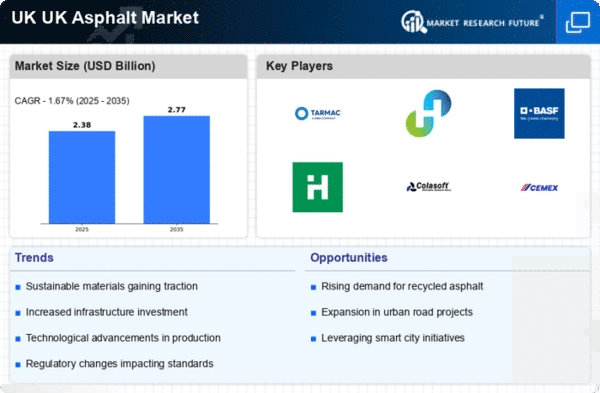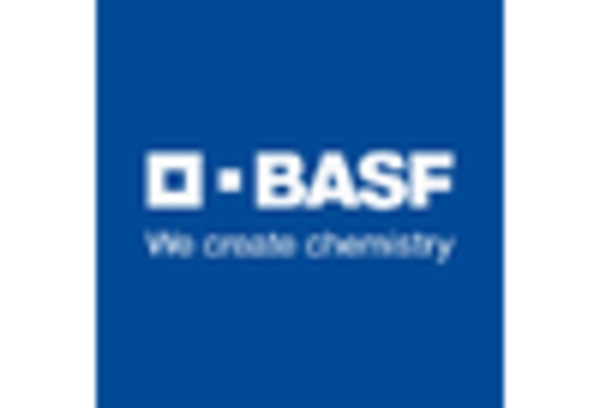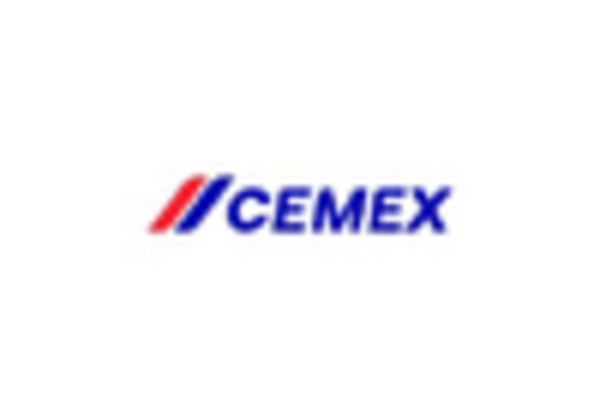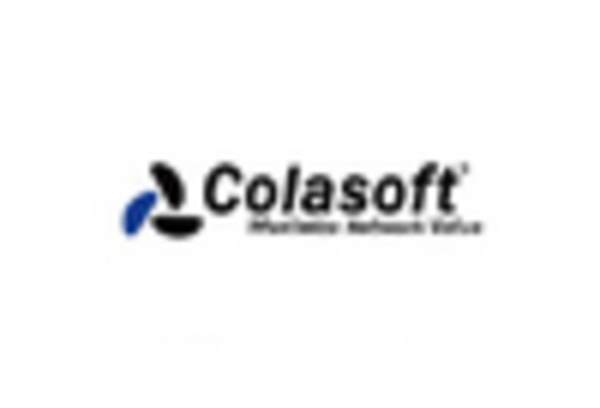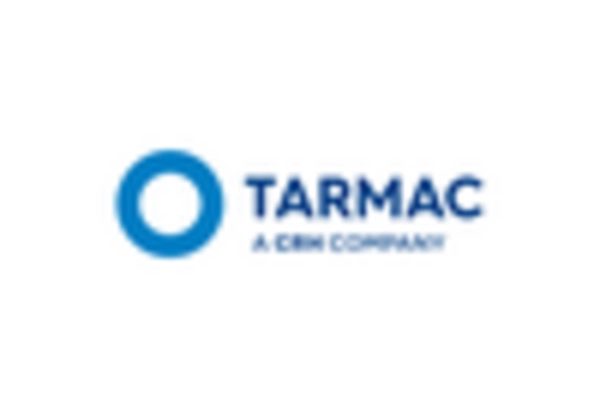Urbanization Trends
Urbanization trends are significantly impacting the UK Asphalt Market, as the increasing population in urban areas drives demand for infrastructure development. The UK is experiencing a notable rise in urbanization, with projections indicating that over 80% of the population will reside in urban areas by 2050. This demographic shift necessitates the construction and maintenance of roads, highways, and other transportation networks, which are heavily reliant on asphalt products. As cities expand and evolve, the UK Asphalt Market must adapt to the changing needs of urban infrastructure, potentially leading to increased investment in innovative asphalt solutions. The interplay between urbanization and asphalt demand is likely to create new opportunities for growth and development within the industry.
Regulatory Framework
The regulatory framework governing the UK Asphalt Market is a significant driver of market dynamics. The UK government has established stringent regulations regarding the quality and environmental impact of asphalt products. Compliance with these regulations is essential for manufacturers and suppliers, as non-compliance can result in penalties and loss of market access. Additionally, the introduction of new standards aimed at promoting sustainable practices is influencing product development and innovation within the industry. Companies that proactively adapt to these regulatory changes are likely to gain a competitive edge, as they can offer products that meet or exceed the required standards. This regulatory landscape is expected to shape the future of the UK Asphalt Market, driving both compliance and innovation.
Infrastructure Investment
The UK Asphalt Market is poised for growth due to substantial infrastructure investment from both public and private sectors. The UK government has committed to significant funding for road maintenance and development projects, with an estimated investment of over £27 billion in the next five years. This influx of capital is likely to stimulate demand for asphalt products, as they are essential for road construction and repair. Additionally, the ongoing push for improved transportation networks, including highways and urban roads, further emphasizes the need for high-quality asphalt solutions. As infrastructure projects progress, the UK Asphalt Market may experience increased competition among suppliers, leading to potential advancements in product offerings and pricing strategies.
Sustainability Initiatives
The UK Asphalt Market is increasingly influenced by sustainability initiatives aimed at reducing carbon emissions and promoting eco-friendly practices. The UK government has set ambitious targets to achieve net-zero emissions by 2050, which has led to a growing demand for sustainable asphalt products. This includes the use of recycled materials and warm-mix asphalt technologies that lower energy consumption during production. As a result, companies within the UK Asphalt Market are investing in research and development to create greener alternatives, which not only comply with regulations but also appeal to environmentally conscious consumers. The shift towards sustainability is expected to drive innovation and create new market opportunities, potentially reshaping the competitive landscape of the industry.
Technological Advancements
Technological advancements are playing a crucial role in shaping the UK Asphalt Market. Innovations in asphalt production processes, such as the introduction of polymer-modified asphalts and advanced mixing techniques, are enhancing the performance and durability of asphalt products. These technologies not only improve the lifespan of road surfaces but also contribute to cost savings in maintenance and repairs. Furthermore, the integration of smart technologies, such as sensors and data analytics, is enabling better monitoring of road conditions and optimizing maintenance schedules. As the UK Asphalt Market embraces these advancements, it is likely to see a shift towards more efficient and effective solutions, ultimately benefiting both consumers and industry stakeholders.


